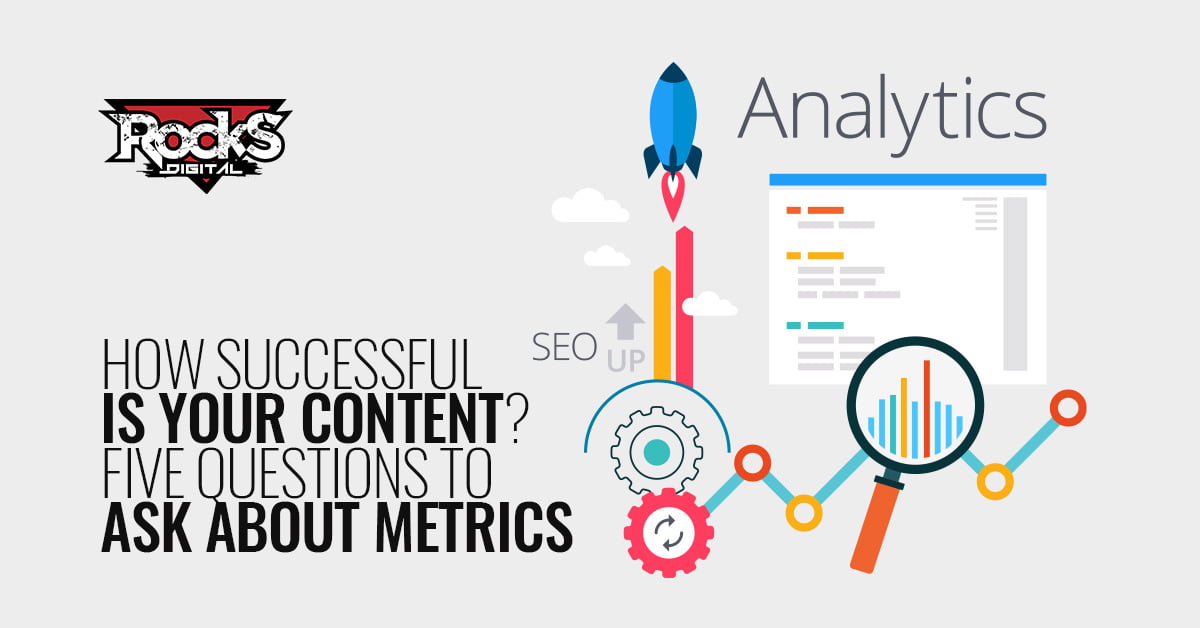 Most content marketers go to great lengths to maximize the effectiveness of their content. There are hundreds, if not thousands, of suggested tips and tricks to get your content noticed by Google, to post promotional tweets at the right time, to buy the best keywords or create the optimal Facebook ad campaign. And for what? Is all of this work really delivering solid ROI? Here are five questions to ask yourself about the performance metrics of your content.
Most content marketers go to great lengths to maximize the effectiveness of their content. There are hundreds, if not thousands, of suggested tips and tricks to get your content noticed by Google, to post promotional tweets at the right time, to buy the best keywords or create the optimal Facebook ad campaign. And for what? Is all of this work really delivering solid ROI? Here are five questions to ask yourself about the performance metrics of your content.
Is the number of unique visitors/views the metrics indicator of great content?
For some businesses, perhaps, but for those that want to make sales online, the answer is more likely to be ‘no.’ That’s because 65% of total revenue for most online businesses comes from purchases made in more than one step. It may very well be that a rise in the number of repeat visitors is a better indicator of the impact your content is having.
It’s a good thing that my site visitors spend more time and view more pages than average, right?
Not necessarily. You need to know more than just what people did; you need to know why they did it. Maybe they had difficulty finding the content they wanted, or perhaps your copy was unclear. On the other hand, it could be a good thing. Analyzing the paths your visitors took as they moved around your site might reveal more.
What are the best ways to measure people’s engagement with my content?
To answer this question you first have to ask yourself other questions, starting with, “What does success looks like to me?” If a lot of people download your free ebook, does that mean it was a good use of time to create it? Or do you want more? If so, how will you get more and how will you know if you do? Similarly, are lots of social media likes enough, or do you want people to share your content? What’s better on Twitter: a favorite or a retweet? It all depends on what your goals are.
OK, so how do I write good goals?
Good goals are ones that can be measured, so start by identifying the actions you seek and then think about the tools that are available for measuring those actions. If, for instance, you want to sell a product or service online, the ultimate measure of success will be a sale. But there are probably interim measures that indicate a given prospect’s journey through the sales process, and you can write goals to reflect that. So, getting a prospect to download an educational ebook about the home water systems you sell is a success. Your content has fulfilled its purpose because you created that ebook to help people understand why your water system is better than a competitor’s.
Is all this really necessary? I have a business to run.
It is if you really want to assess the ROI of your content marketing efforts. And there are pros like us available to help you. We’ll analyze your marketplace, determine the best type of content to help you achieve your goals (which we’ll help you write too!), and create a customized, results-driven content campaign just for your business.
What other questions do you have? What kind of metrics are you using to determine if your content is successful? Comment below.
Bernadette Coleman
Bernadette Coleman is a SEO, Local Search, Engaging Content Enthusiast & CEO of Advice Interactive Group, an Inc500 Digital Agency.

















